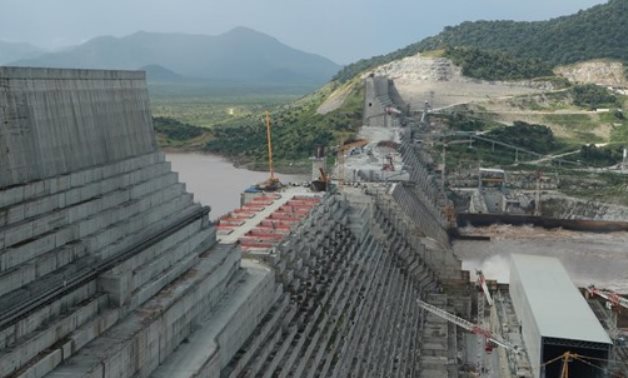
FILE - Ethiopia's Grand Renaissance Dam is seen as it undergoes construction work on the river Nile in Guba Woreda, Benishangul Gumuz Region, Ethiopia September 26, 2019. REUTERS/Tiksa Negeri
This international position would have represented an important legal and diplomatic constraint on Ethiopia, so Egyptian diplomacy must insist that the agreement that took place last Friday during the mini-African summit be translated into an official statement issued by the Ethiopian side and addressed to the International Security Council to which the three countries submitted statements clarifying their previous positions. On a Friday meeting.
The Ethiopian promise will remain on the negotiating table today, unless it is translated, at least, into a commitment before the international community and the United Nations to not initiate the first filling before reaching an agreement. Setting a deadline of only two weeks to reach an Ethiopian agreement gives room for further hardening it, then returning to fallacies and claiming that Egypt was the one that thwarted the agreement, and claims that it has become a solution of the obligation not to start the first filling without an agreement.
Last Friday’s promise must shift from its voluntary framework to become a political and legal commitment to the world, and not only to those participating in the African mini-summit.
In contrast to this principled dispute over the first filling of the dam and its connotation regarding the primacy of the logic of individual decisions or the consensual logic of the organization of river water management, there are two other issues that must include any potential agreement to avoid their risks to Egypt and Sudan, namely (filling the dam of the dam with its maximum - unilaterally Ethiopia with decisions to build any future dams and determine their dimensions)
It must be emphasized here that, Egypt is always commitment to protect its water rights in the waters of the Nile, and that it will take all measures at the political level and within the framework of the rules, principles and foundations of international law in this regard, noting that the Nile River will remain the geographical and historical link between the upstream countries And downstream countries.
And that all the solutions announced by Egypt regarding this issue focus on international law and political action in order to maintain Egyptian water national security, which confirms that the Egyptian political leadership pursues in its foreign policy the principle of good neighborliness, mutual cooperation and the search for common interests, which is Consistent with Egypt’s keenness to resolve conflicts between African countries by political means, and for the continent to move strongly towards peace and development.
Mohamed Abdelaziem Elchime is an associate Professor of Political science, Helwan University

Comments
Leave a Comment